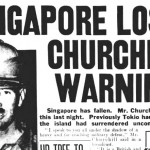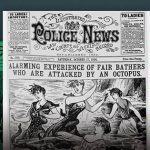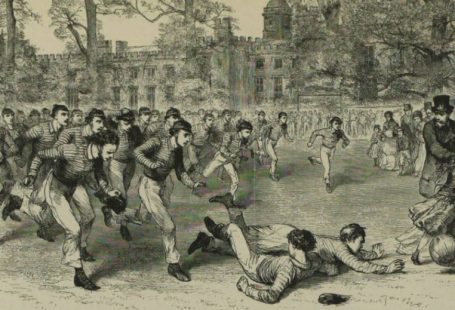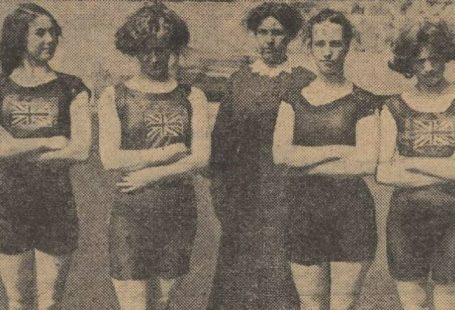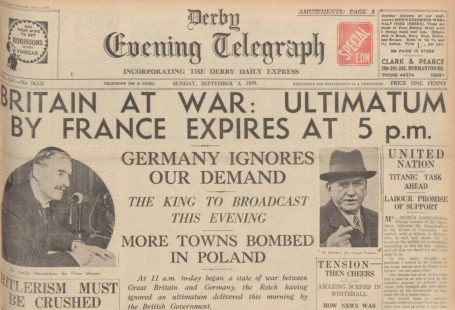
“I won’t be embarrassed by what I discover, bring it on! Let’s have an adventure.” – Warwick Davis
In last night’s episode of Who Do You Think You Are? we joined Warwick Davis, best known for his acting career, as he uncovered a few family secrets including bigamy and multiple marriages on his mother’s side of the family, as well as tragedy and another successful performer on his father’s side.
Searching for a Local Pub
Warwick wanted to find out about his paternal great-grandfather, Dennis John Manning, who had seemed to go missing some time during or after the First World War. We learned from the marriage certificate of Dennis and Lucy, Warwick’s great-grandmother, that in 1903 Dennis was a manager at the ‘Cock and Bottle’, a pub in Lambeth. By searching for the pub’s name on The British Newspaper Archive. we can find out what kind of goings-on happened there at the time that Dennis John Manning was employed there.
An initial search for ‘Cock and Bottle’ returns a large number of results, of which many are not relevant to our purposes. Searches can be refined and filtered in a couple of ways. One way is to use the ‘Advanced search’ button, found on both the home page and the search results page.


When using the advanced search form, you can be as precise or as flexible as you want or need to be. You do not have to fill in every field in order to find more relevant results.

Another way is to use the filters on the left hand side of the search results page to refine a search. For more search tips, visit our Search Tips help page or try reading other blog posts with helpful advice.
Struggles and Tragedy
Dennis and Lucy Manning suffered the loss of their first child, Dennis John Robert. Warwick takes a moment to reflect and relate, as his own family had suffered a similar tragedy. Infant mortality was a prevalent and concerning experience at the time, with one in seven children dying before they reached their first birthday. Dennis and Lucy went on to have a large family of 9 surviving children, one of which was Warwick’s grandmother Edith.
In 1915, a year after the outbreak of the First World War, Dennis John Manning, who at 42 years old was too old to be drafted for combat, was employed as a munitions worker at Woolwich Royal Arsenal. The arsenal had to dramatically increase production to meet massive demand for artillery and shells for both the military and navy and employed more than 80,000 people at its peak. Even with such a massive workforce, they still had to call for volunteers.

Work at the arsenal was tough and dangerous. Munitions workers handled dangerous, explosive, and poisonous chemicals such as cordite, which could induce headaches and tiredness, during their long hours of labour with minimal or no protection. Accidents resulting in explosions were not uncommon, as searching for explosions at Woolwich Arsenal reveals.

In June of 1917, not long after working at Woolwich, Dennis John Manning was admitted to Croydon Mental Hospital. Warwick, and his great-grandmother Edith, suspected that the intensely stressful working conditions at Woolwich Arsenal had negative effects on Dennis’ health; however, Dennis suffered from, and eventually succumbed to, syphilis. Dennis had even waited for 10 years after his diagnosis before marrying, which was unusual at the time.
Performing and Irish Roots
While searching for his suspected Irish ancestors, Warwick discovered that his 3 times great-grandfather, Owen Manning, and his wife Margaret, who appear on the 1851 census in London, had moved there from Ireland in the 1820s. London was a city of opportunity, where families had easier access to education and higher wages. Warwick was pleased to find out that one of Owen and Margaret’s sons, another Dennis Manning, eventually became a successful performer. In the late 1850s, this Dennis was the violinist of an ‘American Minstrel’ troupe called Pell’s American Minstrels.

Minstrel groups put on a kind of touring variety show consisting of music, acting, and comedy and were most commonly made up of white actors in blackface. Searching for Pell’s troupe on The British Newspaper Archive shows how successful this particular show was, touring all across the country for a number of years.

Dennis later became multi-faceted in his musical and singing skills. After directing Pell’s Opera, he went on to pair with a Mr G. Lawrence to put on their own show which can be found advertised on the front page of The Era two years after his name appears in advertisements for Pell’s opera.

From the tragedy of losing an infant to success on the stage, Warwick Davis found himself able to deeply relate to his ancestors. At the end of the episode, we spent a moment of reflection with Warwick as he soaked in the atmosphere of the ball room of the Athenaeum in London as he considered the struggles that his ancestors had to overcome, much like himself.


